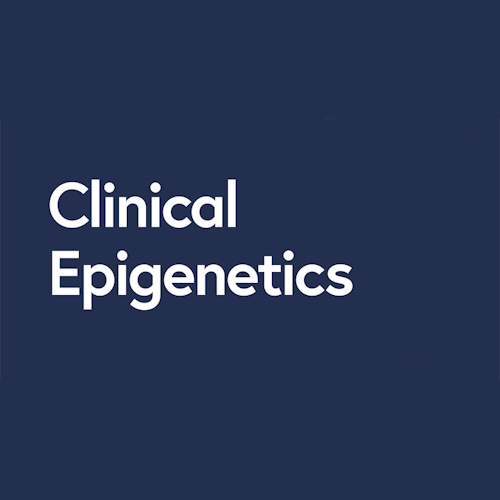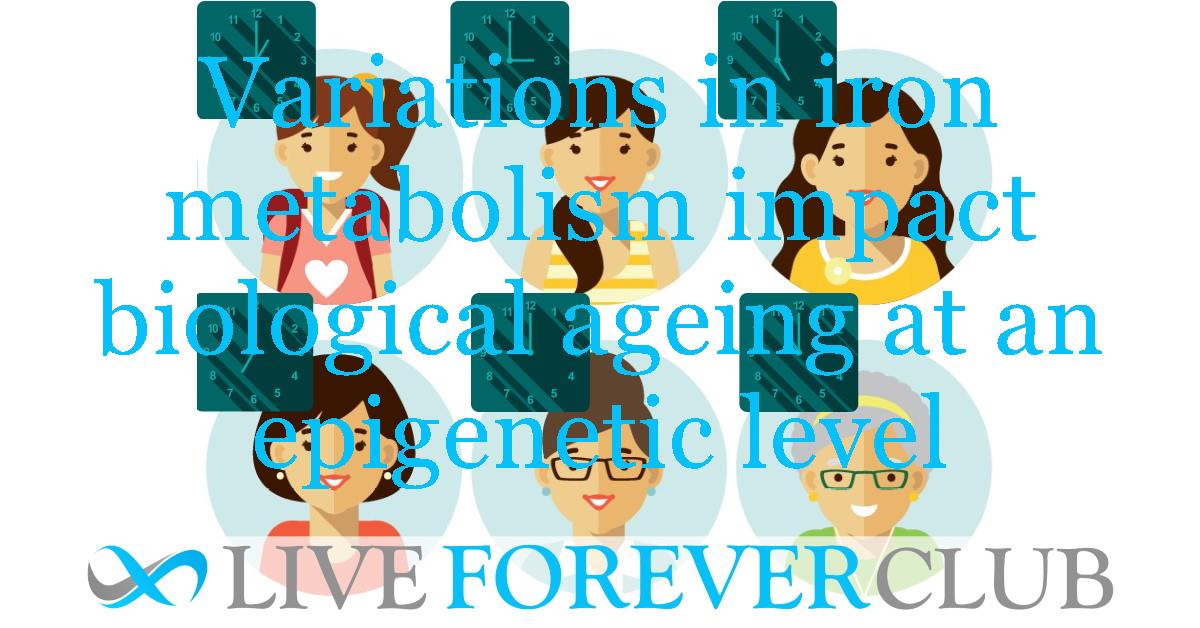Ageing, a universal phenomenon, has long captivated scientists and laypeople alike. The quest to understand why and how we age has led to numerous scientific endeavours. Among these, the study by Wang et al., published in Clinical Epigenetics (2023), stands out for its innovative approach to unraveling the complex relationship between iron metabolism and epigenetic ageing.
Understanding Epigenetics: The Clock Within
At the heart of ageing research lies the field of epigenetics, which studies changes in gene expression not caused by changes in the DNA sequence itself. Epigenetic changes can be influenced by various factors, including lifestyle and environmental exposures. Crucial to this field are epigenetic clocks, which are based on DNA methylation patterns. These clocks offer a window into biological ageing – a concept distinct from chronological age, as it reflects an individual's physiological health and propensity for age-related diseases.
Iron: A Double-Edged Sword in Our Bodies
Iron is essential for numerous biological functions, such as oxygen transport in blood, energy production, and DNA synthesis. However, maintaining iron levels within a narrow range is critical, as both deficiency and overload can be detrimental. This balance, known as iron homeostasis, is intricately regulated in the body but is often disrupted with age.
The Pioneering Study: A Novel Perspective on Ageing
The research by Wang et al. set out to explore how variations in iron metabolism impact biological ageing at an epigenetic level. Utilising a two-sample Mendelian randomisation approach, they investigated the causative effects of iron biomarkers on epigenetic age acceleration. This approach allowed them to infer causality from observational data using genetic variants as proxies.
The study harnessed data from extensive genome-wide association studies (GWAS), focusing on genetic variants associated with iron biomarkers like serum iron, ferritin, and transferrin saturation. These biomarkers were then correlated with different measures of epigenetic ageing, such as GrimAge, HannumAge, and intrinsic epigenetic age acceleration. The team meticulously selected genetic instruments, ensuring that they were strongly associated with iron traits and not confounded by other factors.
Iron’s Role in Ageing
The findings were eye-opening:
Serum Iron and Accelerated Ageing
Higher levels of genetically predicted serum iron were linked with increased epigenetic age acceleration, suggesting a direct influence of iron on ageing processes.
Transferrin Saturation and Ageing
The study also found that high transferrin saturation, an indicator of iron availability, was associated with accelerated ageing markers.
Ferritin and Age Acceleration
Elevated ferritin levels correlated with increased PhenoAge acceleration, pointing to the role of iron storage in ageing.
Implications and Insights
The study's revelations about iron's role in ageing extend far beyond the scientific community, offering profound implications for public health, medical research, and individual wellness strategies.
Revising Our Understanding of Ageing
Wang et al.'s research challenges and enriches our current understanding of ageing. Ageing is not just a chronological passage of time but a complex interplay of genetic, environmental, and metabolic factors. By establishing a link between iron metabolism and epigenetic age acceleration, the study underscores the importance of looking at ageing through a multifaceted lens. It brings to light the potential for iron levels to serve as biomarkers of ageing, offering a tangible measure to track and understand an individual’s biological ageing process.
Potential for New Therapeutic Targets
Perhaps the most exciting implication of this research lies in its potential to inspire new therapeutic interventions. The study suggests that regulating iron levels in the body could be a strategy to slow down or even reverse aspects of the ageing process. This could lead to the development of novel treatments or dietary recommendations aimed at maintaining optimal iron balance, potentially helping to stave off age-related diseases and improve overall longevity.
Public Health and Lifestyle Considerations
The findings also have significant public health implications. They highlight the need for more nuanced approaches to iron supplementation and management, especially in older populations. Public health strategies might need to consider the balance of iron intake – ensuring sufficiency without tipping into overload – as part of broader ageing and health maintenance programs.
Implications for Age-Related Diseases
The study's insights into how iron influences epigenetic ageing could open new avenues in understanding and treating age-related diseases. Conditions like neurodegenerative disorders, cardiovascular diseases, and certain cancers have been linked to both ageing and iron metabolism. This research provides a foundational understanding that could lead to breakthroughs in preventing or treating these conditions by targeting iron homeostasis.
Personalised Medicine and Ageing
In the realm of personalised medicine, the study paves the way for more individualised approaches to ageing and disease prevention. Understanding how a person's iron metabolism interacts with their epigenetic ageing could lead to personalised lifestyle and medical interventions, tailored to an individual’s specific genetic and metabolic profile.
Iron, Oxidative Stress, and Cellular Ageing
The research delves into the cellular mechanisms by which iron affects ageing. Excessive iron in cells leads to increased production of reactive oxygen species (ROS), causing oxidative stress and DNA damage. This process, exacerbated in ageing cells with impaired iron regulation, contributes significantly to the ageing process and the development of age-related diseases.
Inflammaging: The Chronic Inflammation of Ageing
"Inflammaging" refers to the chronic, low-grade inflammation observed in ageing. The study highlights how iron deposition in tissues, indicative of disrupted iron homeostasis, contributes to this phenomenon. This deposition, in turn, exacerbates cellular ageing and the progression of age-related diseases.
Reflecting on Limitations and Looking Ahead
While the study's findings are robust, the researchers acknowledge certain limitations, such as potential biases in using specific iron biomarkers and the need for more diverse genetic data. Future research is called for to further explore the biological mechanisms linking iron and epigenetic ageing and to translate these findings into effective interventions.
A Leap Forward in Ageing Research
The study by Wang et al. represents a significant advancement in our understanding of the ageing process. By shedding light on the intricate relationship between iron metabolism and epigenetic ageing, the research opens new horizons for combating age-related health issues. It underscores the importance of maintaining iron homeostasis and points to potential therapeutic targets for delaying or even reversing age-related changes.
As the journey to unravel the mysteries of ageing continues, studies like this offer valuable insights and hope. They bring us closer to a future where the ageing process is not just understood but potentially controlled, leading to healthier, longer lives.
The research was carried out in the Sichuan University, China and the findings are published in the Clinical Epigenetics journal.






